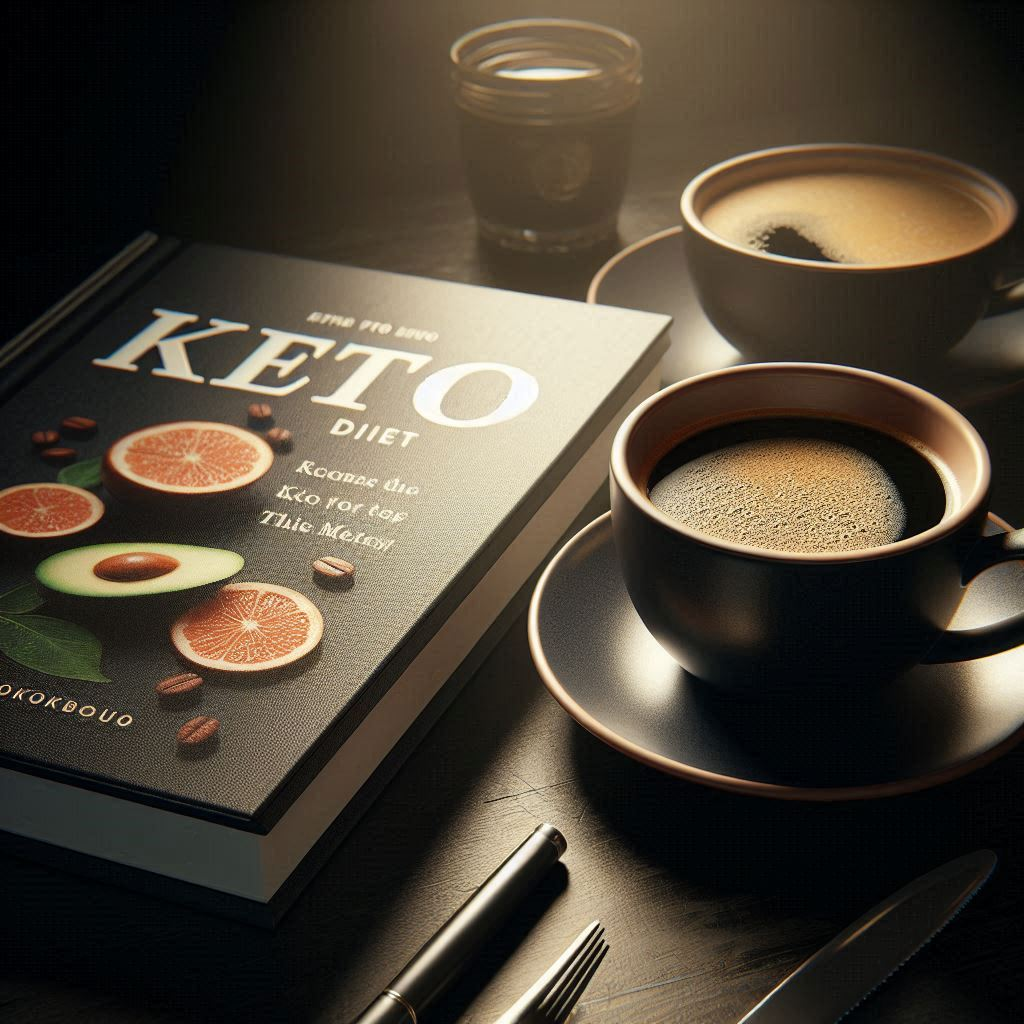Coffee lovers following a ketogenic diet often wonder: can I drink coffee on keto? This question arises as health-conscious individuals seek to balance their love for a morning brew with the strict carbohydrate limitations of the ketogenic lifestyle. With the rising popularity of both keto diets and specialty coffee, it’s crucial to understand how these two worlds intersect.
The ketogenic diet, characterized by high fat, moderate protein, and very low carbohydrate intake, aims to shift the body into a state of ketosis. In this metabolic state, the body burns fat for fuel instead of carbohydrates. Coffee, a beloved beverage worldwide, contains minimal calories and carbohydrates in its pure form. However, the additions many people enjoy in their coffee can significantly impact its keto-friendliness.
This article will explore the nuances of how to drink coffee on keto, addressing common concerns and providing practical insights. We’ll delve into the impact of different coffee preparations on ketosis, examine suitable additives, and offer tips for enjoying your caffeine fix while maintaining ketosis. By the end, you’ll have a clear understanding of how to incorporate coffee into your ketogenic lifestyle without compromising your dietary goals.
Roots of the Roast
The ketogenic diet has gained significant popularity in recent years as a weight loss and health optimization strategy. Originating as a therapeutic approach for epilepsy in the 1920s, the diet has evolved into a mainstream nutritional plan. The core principle of keto is to drastically reduce carbohydrate intake, typically to less than 50 grams per day, while increasing fat consumption. This macronutrient shift forces the body to enter ketosis, a metabolic state where fat becomes the primary fuel source instead of glucose.
Coffee, on the other hand, has been a beloved beverage for centuries, valued not only for its rich flavor but also for its stimulating effects. The question of whether one can drink coffee on keto arises from the intersection of these two popular lifestyle choices. Coffee itself is a low-calorie, nearly carbohydrate-free drink, containing only trace amounts of minerals and B vitamins. However, the way coffee is prepared and consumed can significantly impact its compatibility with a ketogenic diet.
Understanding how to drink coffee on keto is crucial for several reasons. First, many rely on coffee as part of their daily routine, and abruptly cutting it out could lead to withdrawal symptoms and decreased adherence to the diet. Second, coffee has been associated with various health benefits, including improved cognitive function, increased metabolic rate, and enhanced physical performance – all of which can complement the goals of a ketogenic lifestyle.
Moreover, the coffee industry has responded to the keto trend by developing specialized products and recipes. From bulletproof coffee to MCT oil additives, there’s a growing market for keto-friendly coffee options. This evolution highlights the importance of educating consumers on how to navigate these choices while maintaining ketosis.
As we explore how to drink coffee on keto, it’s essential to consider not just the coffee itself, but also common additives like cream, sugar, and flavored syrups, which can quickly add up in terms of carbohydrates and potentially disrupt ketosis if not managed carefully.
The Full Brewdown
Can you drink coffee on keto? The short answer is yes, but with some important considerations. Let’s break down the key aspects of incorporating coffee into a ketogenic diet:
1. Black Coffee: The Keto-Friendly Base
Black coffee is the most straightforward way to drink coffee on keto. A typical 8-ounce cup of black coffee contains:
- Calories: 2-5
- Carbohydrates: 0 grams
- Fat: 0 grams
- Protein: 0.3 grams
These negligible macronutrients make black coffee an excellent choice for keto dieters. It won’t disrupt ketosis and can even support your diet goals. Black coffee has been shown to:
- Boost metabolism: Studies indicate that caffeine can increase metabolic rate by 3-11%, potentially aiding fat burning.
- Enhance physical performance: Caffeine can improve exercise performance by up to 12%, which is beneficial for those combining keto with an active lifestyle.
- Provide antioxidants: Coffee is rich in polyphenols, which have anti-inflammatory properties.
2. Coffee Additives: Navigating the Keto Landscape
While black coffee is keto-friendly, many people prefer their coffee with added ingredients. Here’s how common additives stack up:
a) Fats: Keto’s Best Friends
- Heavy Cream: With 0.4g carbs per tablespoon, it’s an excellent keto option.
- Butter: Used in “bulletproof” coffee, butter adds richness and healthy fats.
- MCT Oil: Medium-chain triglycerides can boost ketone production.
These fat sources not only keep you in ketosis but can also increase satiety and provide sustained energy.
b) Sweeteners: Proceed with Caution
To drink coffee on keto while satisfying a sweet tooth, consider:
- Stevia: A natural, zero-calorie sweetener that doesn’t impact blood sugar.
- Erythritol: A sugar alcohol with minimal effect on blood glucose.
- Monk Fruit: Another natural, zero-calorie option.
Avoid sugar and high-carb syrups, as these can quickly deplete your daily carb allowance.
c) Plant-Based Milks: Choose Wisely
- Unsweetened Almond Milk: With only 0.5g carbs per 100ml, it’s a popular keto choice.
- Coconut Milk: Rich in MCTs, it can support ketosis when used in moderation.
Avoid sweetened varieties and higher-carb options like oat milk.
3. Specialty Keto Coffee Drinks
The rise of keto has spawned several coffee drinks tailored to the diet:
a) Bulletproof Coffee
A blend of coffee, grass-fed butter, and MCT oil, bulletproof coffee has become a keto staple. It provides:
- Sustained energy from fats
- Potential cognitive benefits from MCTs
- A creamy texture without carbs
However, it’s calorie-dense, so factor it into your daily macros.
b) Keto Latte
Made with unsweetened almond milk and heavy cream, a keto latte can satisfy those missing traditional lattes. For added flavor without carbs, consider a sprinkle of cinnamon or a dash of sugar-free vanilla extract.
c) Iced Keto Coffee
Cold brew coffee mixed with unsweetened almond milk and a keto-friendly sweetener makes for a refreshing summer drink that won’t kick you out of ketosis.
4. Potential Pitfalls: What to Watch Out For
While it’s possible to drink coffee on keto, be aware of these common mistakes:
- Overconsuming Calories: Adding too much fat to coffee can lead to excessive calorie intake, potentially stalling weight loss.
- Hidden Carbs: Some coffee shops use syrups or mixes that contain hidden carbs. Always ask about ingredients.
- Caffeine Sensitivity: While not directly related to ketosis, excessive caffeine can disrupt sleep and increase cortisol, potentially affecting keto adaptation.
5. Timing Your Coffee Consumption
When you drink coffee on keto can be as important as how:
- Morning Coffee: Many find that a fat-rich coffee in the morning helps extend their overnight fast and keeps them satiated.
- Pre-Workout: Caffeine before exercise can enhance performance and potentially increase fat burning.
- Post-Meal: Some studies suggest that coffee after a meal can blunt blood sugar spikes, which could be beneficial for maintaining ketosis.
6. Quality Matters
The quality of your coffee can impact your keto journey:
- Opt for organic, high-quality beans to minimize exposure to pesticides and maximize antioxidant content.
- Consider trying specialty coffees that offer unique flavor profiles without the need for high-carb additives.
For example, Ghostly Gold Coffee{:target=”_blank”} from Phantom Roast offers a smooth, rich flavor that can be enjoyed black or with keto-friendly additions.
7. Individual Variations
It’s crucial to remember that the impact of coffee on ketosis can vary between individuals. Factors such as metabolism, insulin sensitivity, and overall diet composition play a role. Some people may find that coffee, even black, affects their ketone levels or cravings. It’s always best to:
- Monitor your ketone levels if you’re concerned about coffee’s impact.
- Pay attention to how you feel after consuming coffee.
- Adjust your coffee consumption based on your personal experiences and goals.
You can indeed drink coffee on keto, and for many, it can be a beneficial addition to the diet. By choosing the right type of coffee, being mindful of additives, and paying attention to how your body responds, you can enjoy your daily brew while maintaining ketosis. Whether you prefer a simple black coffee or a more elaborate keto-friendly concoction, there are plenty of options to satisfy your coffee cravings while supporting your ketogenic lifestyle.
Practical Tips and Recommendations
To successfully drink coffee on keto, consider these actionable tips and recommendations:
- Experiment with different brewing methods:
- Try cold brew for a smoother, less acidic taste that’s enjoyable black.
- Use a French press to extract more oils, enhancing flavor without additives.
- Explore pour-over methods for a clean, nuanced cup that showcases the coffee’s natural qualities.
- Gradually reduce additives:
- If you’re used to sweetened coffee, slowly decrease the amount of sweetener over time.
- Start by replacing sugar with keto-friendly alternatives like stevia or erythritol.
- Transition from milk to heavy cream, then to smaller amounts of cream.
- Create a keto coffee station:
- Stock up on keto-friendly creamers and sweeteners.
- Keep MCT oil or coconut oil on hand for bulletproof coffee variations.
- Invest in a milk frother to create creamy textures without added carbs.
- Plan ahead for coffee shop visits:
- Research keto options at your favorite cafes beforehand.
- Learn how to order keto-friendly drinks (e.g., “Americano with a splash of heavy cream”).
- Carry your own keto sweetener packets for convenience.
- Track your coffee intake:
- Use a food tracking app to log your coffee and additives.
- Monitor how different coffee drinks affect your ketone levels and adjust accordingly.
- Explore flavor enhancers:
- Add a pinch of cinnamon or nutmeg for natural sweetness.
- Try a few drops of sugar-free vanilla or hazelnut extract for variety.
- Experiment with Demon’s Delight Coffee for a bold, flavorful base that stands up well to keto-friendly additions.
- Make iced coffee in batches:
- Brew a large batch of strong coffee and store it in the refrigerator.
- Add ice, a splash of heavy cream, and a keto sweetener for a quick, refreshing drink.
By implementing these tips, you can enjoy a variety of ways to drink coffee on keto while maintaining your dietary goals. Remember to listen to your body and adjust your coffee consumption to best suit your individual needs and preferences.
Common Misconceptions
There are several myths surrounding the practice of drinking coffee on keto that need clarification:
- Myth: Any coffee drink is keto-friendly.
Reality: While black coffee is keto-friendly, many popular coffee drinks contain hidden carbs from syrups, milk, or toppings that can disrupt ketosis. - Myth: Adding butter to coffee negates its health benefits.
Reality: Grass-fed butter can actually enhance coffee’s nutritional profile, adding beneficial fatty acids and fat-soluble vitamins. - Myth: Drinking coffee will kick you out of ketosis.
Reality: Plain coffee doesn’t contain carbs and won’t affect ketosis. It’s the additives that can potentially impact your metabolic state. - Myth: Decaf coffee isn’t keto-friendly.
Reality: Decaf coffee is just as low in carbs as regular coffee and is perfectly suitable for a ketogenic diet. - Myth: You need to drink bulletproof coffee to maintain ketosis.
Reality: While bulletproof coffee can be part of a keto diet, it’s not necessary for maintaining ketosis. Plain black coffee or coffee with keto-friendly additions works just as well. - Myth: All sugar substitutes are keto-friendly.
Reality: Some sugar substitutes can affect blood sugar levels. It’s important to choose keto-approved sweeteners like stevia or erythritol.
Navigating how to drink coffee on keto doesn’t mean sacrificing your favorite beverage. By understanding the basics of keto-friendly coffee consumption, you can continue to enjoy your daily brew while maintaining ketosis. Remember that black coffee is always a safe choice, and when adding to your coffee, focus on high-fat, low-carb options like heavy cream or MCT oil. Be mindful of sweeteners, opting for keto-approved alternatives to sugar.
The key takeaways are:
- Black coffee is inherently keto-friendly
- Pay attention to additives and their carb content
- Experiment with keto-specific coffee drinks like bulletproof coffee
- Quality matters – consider trying specialty coffees for enhanced flavor without additives
As you continue your keto journey, don’t be afraid to experiment with different coffee preparations to find what works best for you. Monitor your body’s response and adjust accordingly. Enjoying coffee on keto is about balance and mindful choices.
To enhance your keto coffee experience, consider exploring high-quality, flavorful options like Nocturnal Nectar Coffee from Phantom Roast. Its rich profile can make black coffee more enjoyable and reduce the need for high-carb additives.




